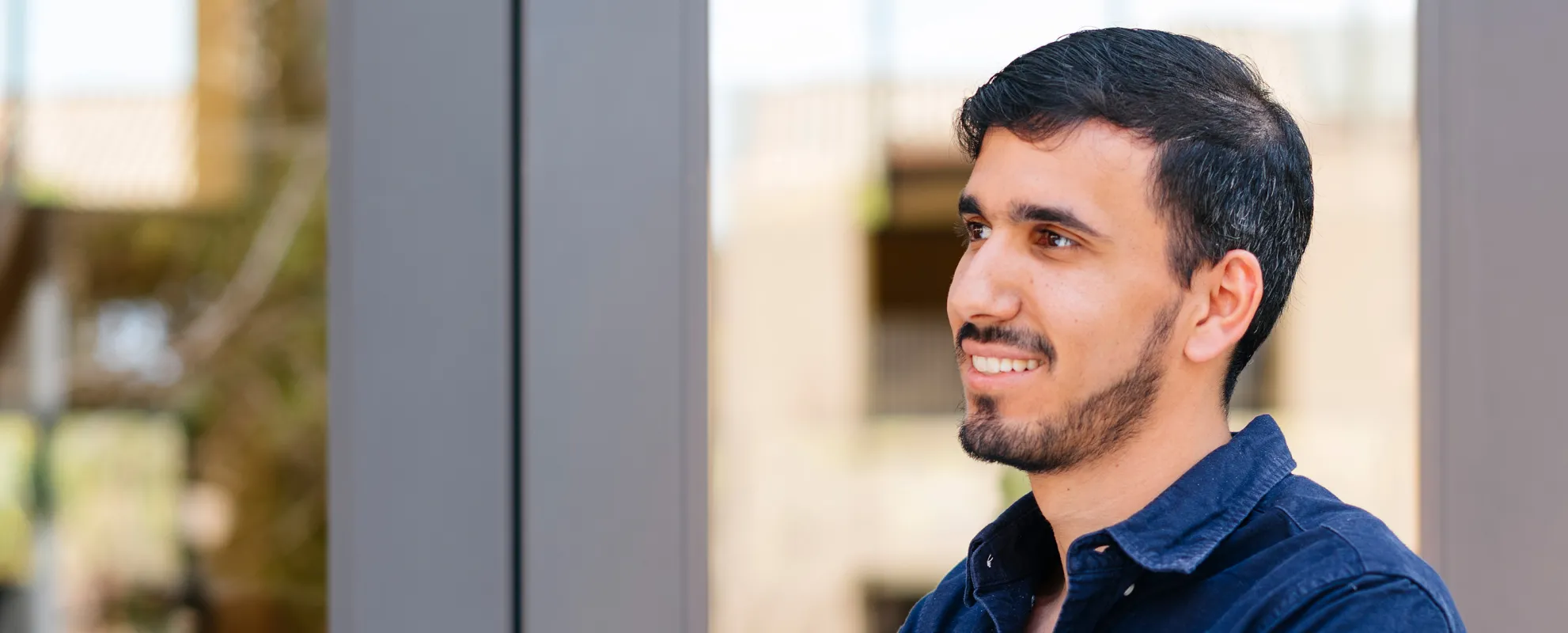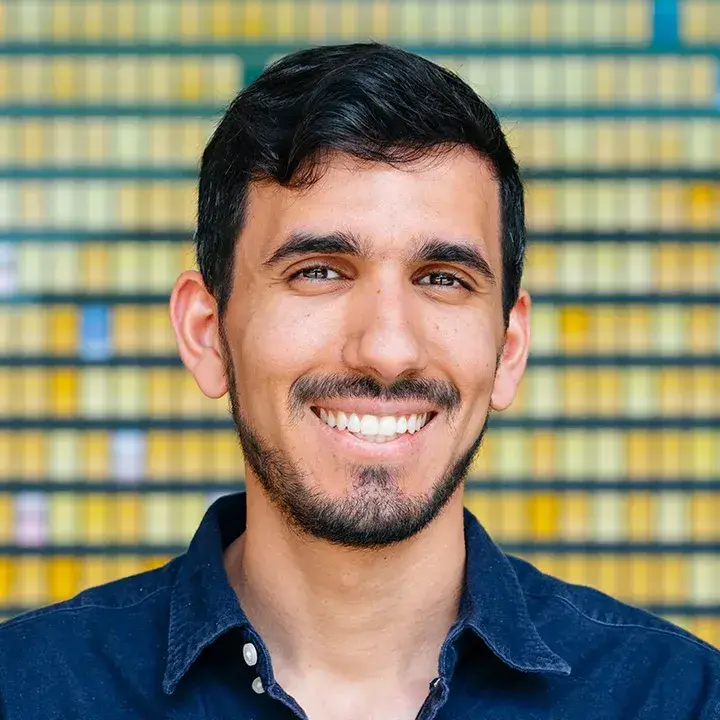Despite being a “nerdy guy” from a small hometown in Israel, Omer Doron always imagined himself doing something big. In Israel, it’s mandatory to serve in the army for three years, and for Doron, this service was spent in Talpiot, a program that trains military recruits with strong math and science backgrounds and capacity for leadership.
“Three years in this program really changed me,” says Doron. “I got to meet people who challenged me. It convinced me I was in the right community. It helped me grow up.”
What convinced you to apply to the Talpiot in 2013?
In Israel, it’s mandatory to serve in the army for three years. A friend in high school told me about this program and the elite unit. What they’re trying to find, just like at the GSB, are people who are very analytical, who can do calculus and linear algebra, but also people with strong social skills and interpersonal dynamics. If I got in, I was convinced it would change my path from being this nerdy, computer science guy into a more well-rounded person.
Was there any specific crisis or event that convinced you to pursue cybersecurity?
While serving in Talpiot, you get to know a lot of the cybersecurity units and other units in the military. I really wanted to solve some hard problems. From looking into everything I could do, I realized research positions are where you solve these problems. Sometimes, you stay in your room for months, even a year, and then you have one “Eureka!” moment, and you get it. That’s a feeling I really wanted. I knew this would be the best way to contribute my skills to my country.
When you applied to Stanford GSB, you said you wanted to start your own AI health tech venture and create a public company to improve patients’ lives. Does that remain your ambition, or has that evolved since you arrived?
While serving, I got to understand how powerful sharp minds can be in affecting everything in the world, specifically people’s lives. I’m very passionate about building things. There’s something exciting about having an idea and making other people excited about it. But on the other hand, you know that solving that problem is going to be a great challenge. I feel that health tech really could benefit from better technology. The industry still uses very basic systems, systems written, like, 30 years ago, while we today use the smartest generative AI. I feel that by getting into this sector, or education, you’re in an industry where technology could make a great impact. I’m trying to maximize how much impact one person can have.
Have you found any particularly useful courses along the way?
Product Launch was very helpful. It’s taught by professor Jonathan Levav with Russell Siegelman. I have a lot of experience launching new products within systems. In this course, you look at an industry that someone wants to disrupt, and you learn what makes a new product gain a lot of popularity or achieve great growth in a short time by looking at the leading companies in the same sector. I learned it’s not enough to launch a new product. There has to be a real need for the product. We looked at segmentation of the market, the willingness of potential customers, the pain points you’re trying to solve. All those frameworks we learned were really helpful in my journey. At one point, I asked the instructor to meet because I wanted to introduce an idea, and he gave me great feedback.
What did the instructor say that was most helpful?
He was very good at dividing all the reasoning I came with into concepts or ideas. I came with my idea, and he asked, “You think this is one idea, but this is three products. Tell me which one you’re most excited about.” He said, “First, draw a graph. One axis is how passionate you are about these segments. The second axis is how strong the need is in that segment? You want to focus on just one segment, which is in the top right corner of this graph.” He helped me analyze the segments and the needs. It all made more sense after I talked to him.
So he helped you clarify your vision?
That’s something special about the GSB. That’s how pretty much every professor and course here works. The professors are a resource to build your own business. You have people with this entrepreneurial mindset at the GSB. Jonathan is a professor at the university, and Russell has founded a lot of companies and owned a VC firm. The GSB brought those two people together to give you those perspectives. It’s just a great place to incubate your ideas before sending them out into the world.
Do you have any reservations about our ability to use technology to collect personal information?
We are facing, in my opinion, the start of a new era. The revolution of generative AI is like the evolution of the internet or the graphical user interface. Once you had Windows 95, for the first time people were using a keyboard and mouse. I believe generative AI will change everything in the next 20 years. There are some concerns about privacy and what those models learn. Those models are like a thinking person, like a brain that absorbs whatever it sees. You can’t unlearn that stuff. It stays somewhere in the neural network. I’m excited about the opportunities that come with this kind of revolution.
In 2019, you led a volunteer delegation to teach Mexican students math, English, and theater as part of the Heroes for Life program. Why did you prioritize that?
I love children. To make them happy makes me happy. And I’ve learned that I like to mentor and teach. For many years I’d known about this Israeli NGO that goes into distressed neighborhoods and, through volunteer work, fosters strong ties with Israel by helping others. I wanted to do that. I also wanted to travel and get to know new places, and it felt like an adventure. I originally thought we were there to renovate a school. But the real benefit was giving emotional support to those children. The experience made me feel if you spend your time in the right places, you can really affect people.
You list skiing and SCUBA diving among your hobbies. What common denominator in those two activities appeals to you?
It’s mainly about doing something outside my comfort zone. The adrenaline you get skiing is amazing. And diving is like replacing your ability to breathe with the ability to fly. My best dives are not deep ones, but the shallow ones where you fly for an hour on the water. It’s a place for me to forget all the problems and daily issues. In the IDF, I was overseeing 50 engineers at age 25. I was responsible for so many people who worked sometimes until 4 a.m., and often they’re responsible for people’s lives. That brings a lot of anxiety, and you’re always stressed. Those are my escapes from the daily pressure.
Photos by Elena Zhukova


